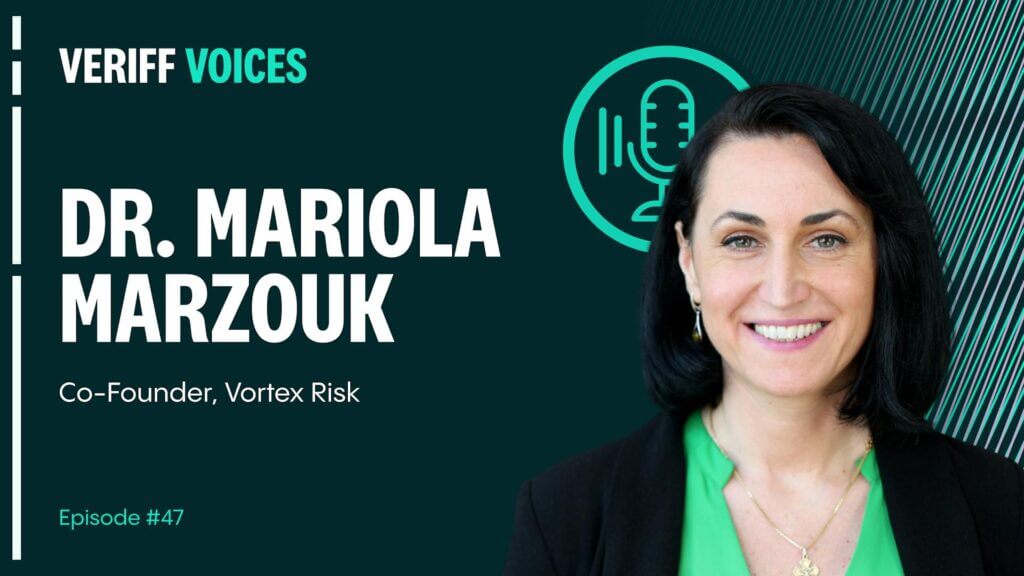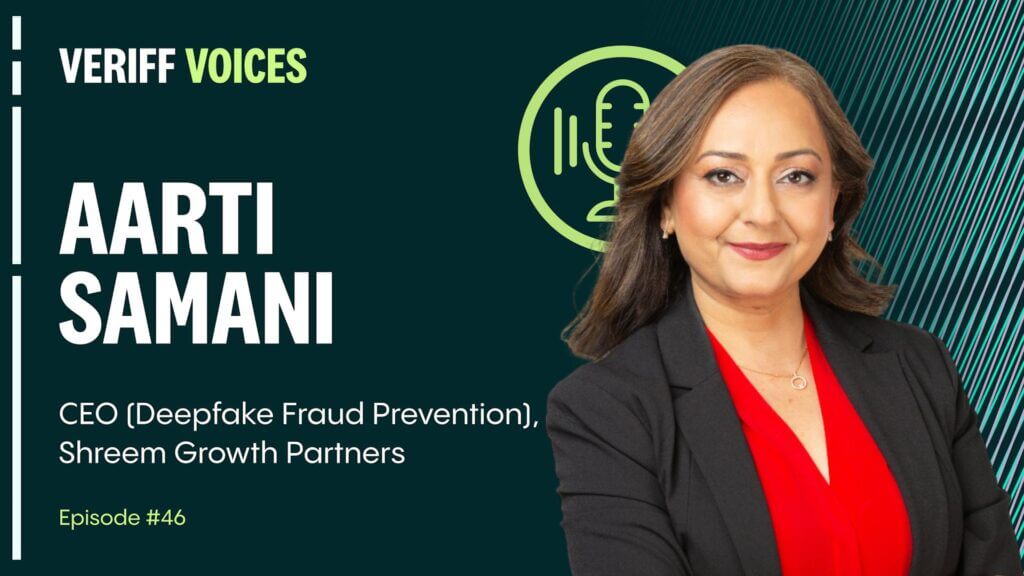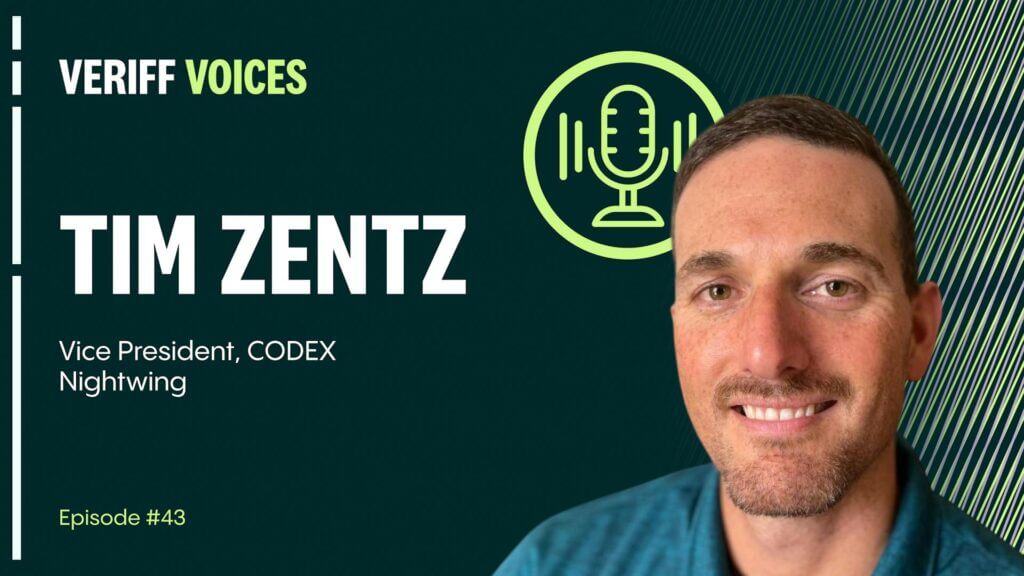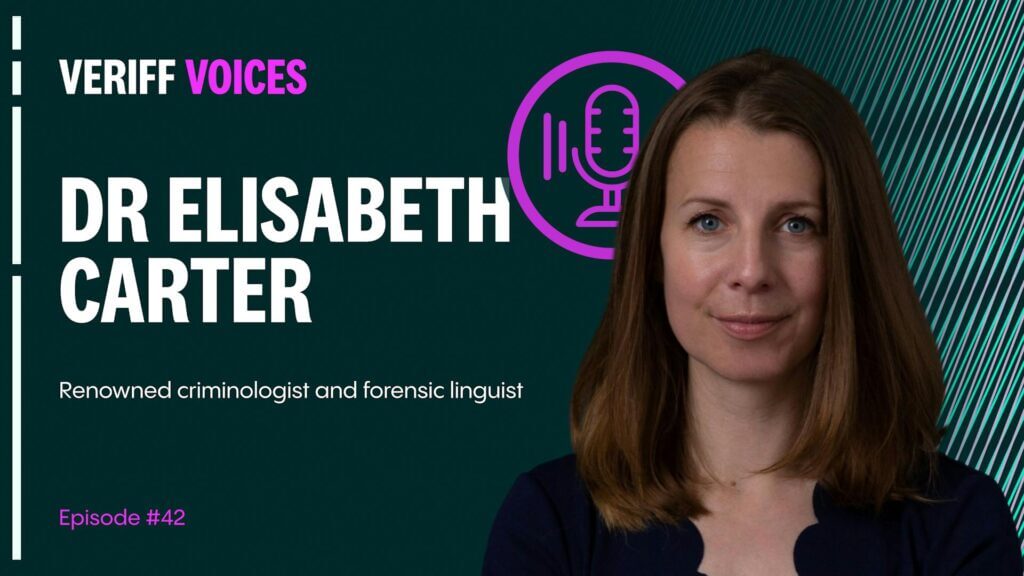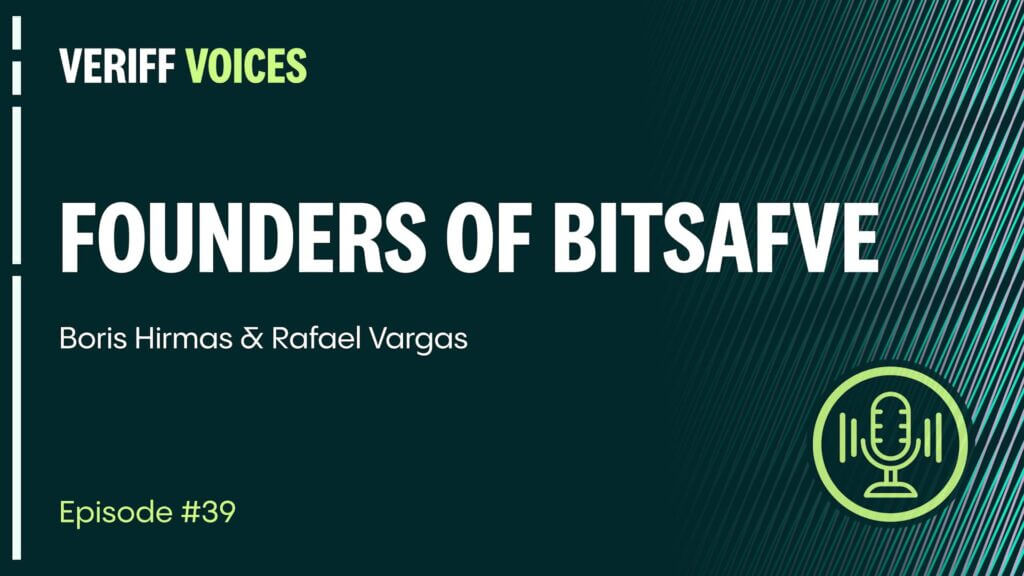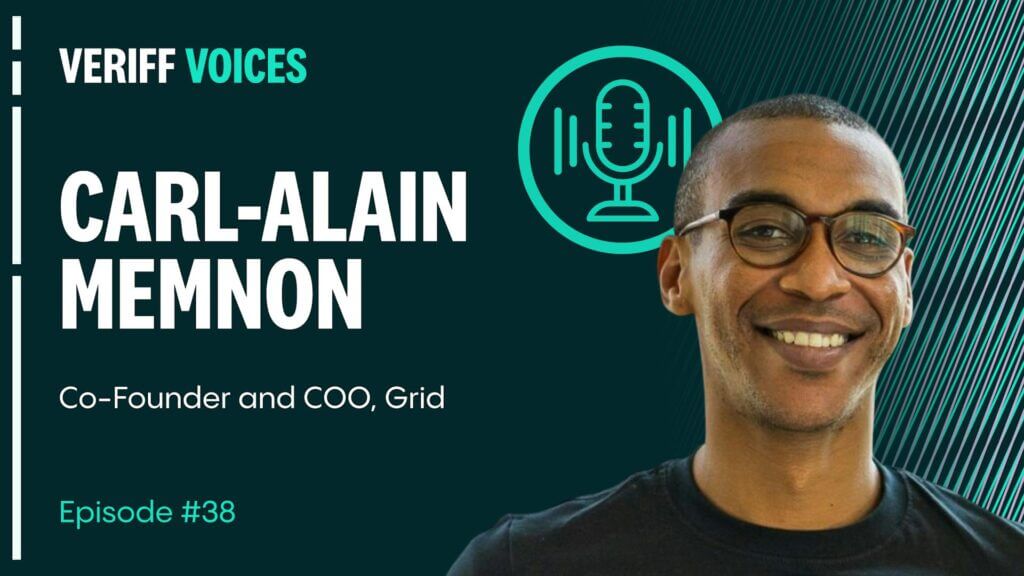Podcast
Love bombed: the devastating impact of romance fraud
Fraud is usually characterized as a financial crime, but for victims the psychological impact can be just as serious. We spoke to Cecilie Fjellhøy, a high-profile victim turned activist, about the devastating consequences of so-called ‘romance’ fraud – and what can be done to combat it.
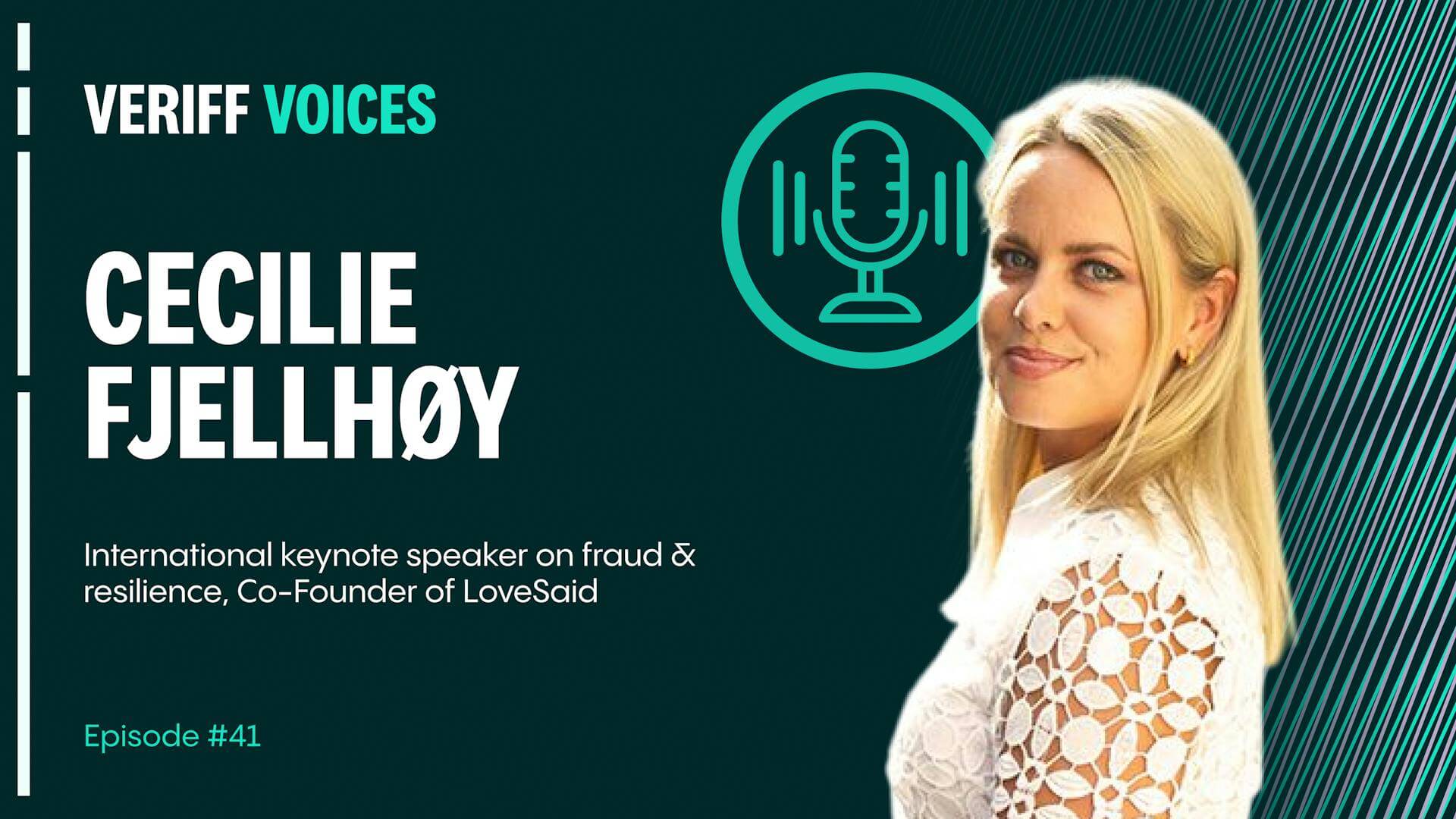
Listen to full conversation with Cecilie now!
The cost of fraud is usually talked about in terms of dollars and cents. Yet victims are often left not just financially but also emotionally bereft. While any type of fraud can have serious consequences for a victim’s wellbeing, the combination of financial and psychological damage wrought by emotional scams can be particularly devastating, as Cecilie Fjellhøy’s remarkable story attests.
Tinder swindled
Cecilie worked for years as a UX designer and holds a master’s degree in digital experience design. However, she is far better known for her appearance in the 2022 Netflix documentary The Tinder Swindler.
Like many other women, Cecilie was a victim of Simon Leviev (real name Shimon Yehuda Hayut), an Israeli fraudster who has served time in prison in Finland as well as in his native country. Her tormentor created a complex narrative, purporting to be the son of a real Israeli diamond magnate and employing a team of employees and supposed family members. The elaborate scam involved Cecilie in a world of luxury hotels, fancy cars and private jets. But beneath the extravagant veneer lay the typical elements of social engineering and romance fraud.
Having built up her trust and engendered a strong emotional attachment (as far as Cecilie was concerned they were girlfriend and boyfriend), Hayut used a classic technique based around two primal human emotions – empathy and fear.
“What was looming in the background was that he had been doing very well in his business, and they had started making threats against his life,” explains Cecilie.
As well as showing her images that he said were security video showing someone breaking into his apartment, ‘Simon’ recounted lurid details of other incidents that made her concerned for her partner’s safety.
“It was an actual app that he went into – I’m sure it was somewhere else, but it’s just the type of thing that’s very good from a technical perspective. And then he told me about funeral flowers, bullets in the mail…”
Hayut used the supposed risk to his personal safety – and the resulting need for anonymity – as a premise to explain why he was unable to use bank accounts and cards belonging to himself and his team. He then asked Cecilie to open a series of credit card accounts for him as a ‘temporary’ measure. Within weeks he had used them to rack up hundreds of thousands of dollars of expenditure – in her name.
The impact
Cecilie quickly found herself in a situation where she not only had to accept that she had been defrauded of over US$250,000 – for which she was being held personally responsible by creditors – but that her ‘boyfriend’ was actually a serial fraudster, and she was just his latest target. She was left not only massively in debt but psychologically scarred and emotionally isolated.
Even before discovering the scam, the situation ‘Simon’ had involved her in was causing Cecilie considerable anxiety and stress.
“I was vulnerable in the sense that I was quite new to the city. I didn’t have my family there. I didn’t have close friends. So, I was all alone with this,” she explains.
“It feels like you’re on a spinning wheel, you know, like you’re on an amusement and it goes faster and faster,” she explains. “I kept just staying on it, because you’re just hoping that somehow everything will work itself out.”
At the same time, Hayut was using Cecilie’s trusting nature against her, exploiting her empathy and creating an ‘us versus them’ narrative that played on her natural instinct to want to protect him.
“He used the word ‘we’ a lot: ‘we are in a war’; ‘we need to be strong’; ‘we are going to get through this’. But it wasn’t him taking out these loans. It was me.”
Question everything
Cecilie now works as an activist and keynote speaker on female empowerment, aiming to create something positive from events that turned her life upside down.
“I’m an advocate, I’m a fraud fighter. It’s become my passion,” she explains.
She set up LoveSaid, a fraud center and think tank, with Anna Rowe of Catch the Catfish, a website dedicated to unmasking emotional scammers. LoveSaid’s mission is to remove the stigma attached to romance fraud, provide help for victims and promote better awareness of the issue in wider society. Its approach revolves around three key principles: prevention, support, and empowerment.
“My advice is don’t stop asking questions, because a fraudster won’t be able to make what they’re asking you make sense,” says Cecilie. She believes this advice applies not just to potential victims, but also to businesses. With Veriff‘s advanced identity verification solutions, businesses can prevent romance fraud by ensuring individuals are who they claim to be, fostering trust and security in online interactions.
On one occasion, Hayut was prevented from using her credit cards by a hotel in Oslo, where staff were suspicious that Cecilie wasn’t present – they also contacted other hotels in the area to warn them of the apparent fraud. In most cases, however, paying for goods and services without the cardholder present was far too easy, as was accessing significant amounts of money that Cecilie would never have been able to repay.
“When I took out loans, sometimes I didn’t even need documentation for it. And when I then applied for them in Norway, I sent in my pay slips from the UK,” she comments. “Why didn’t they ask me, ‘if you’re taking up a loan in Norway you’re supposed to live here – why do you have a job in the UK?’. A phone call could have helped in many ways.”
Cecilie sees the prioritization of ‘frictionless’ processes over security as a key problem that needs to be addressed. She accepts that customers tend to react angrily to their actions being questioned, but believes businesses need to highlight that fraud prevention is an important aspect of good customer service.
“If the bank had blocked my account, I would have said, ‘how dare you!’” she admits. However, she argues that in the long run, any victim of fraud would be incredibly grateful to a business that intervenes while showing sensitivity.
“We would come and kiss your feet, because we need time. We need time and we need questions.”

Veriff Voices
Listen to the full conversation with Cecilie about emotional scams, as well as exploring more Veriff Voices podcast episodes.




